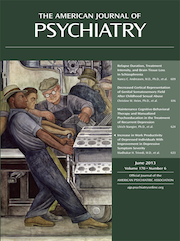An American psychiatrist in Hong Kong, fresh out of the Air Force in 1954, holds off returning to the United States and slipping into a conventional life. He has been interviewing the grim survivors of Chinese thought reform and decides to apply for a small research grant. Thus began the extraordinary journey of the American psychiatrist and public intellectual Robert Jay Lifton.
“Jay” was derived from Chaim Yacov, his mother’s grandfather. He had a “Jewish Huck Finn childhood” in Crown Heights and found Orthodox Judaism suffocating (p. 16). In 1942, he entered Cornell University at age 16. He graduated from New York Medical College in 1948 and pursued psychiatry training at the Downstate Medical Center. Lifton met his wife BJ in New York just before enlisting. BJ, who became well known for her work on adoption, was a “loving partner and muse” (p. 411).
Lifton called himself “a historically minded psychiatrist” (p. 31) and “witness” (p. xi). He entered situations of atrocity, listened carefully to those involved, and wrote highly clear and compelling narratives of documentation and analysis that brought his ideas into the public discourse.
Witness to an Extreme Century provides a thoughtful review of Lifton’s most important works. Intellectually, it breaks little ground not already covered in his classic works, but what is new and highly engaging is the story of his journey into some of the better-known horrors of the 20th century. Lifton divided the book into parts that correspond to his major studies.
Lifton's first study investigated how the Chinese government's “goal was to convert every filial son or daughter into a filial Communist” (p. 41). His psychological and political lens zeroed in on “totalism” and its eight deadly sins, such as “the demand for purity” and “loading the language.” When he returned to the United States, his distaste for any kind of totalism kept him from pursuing psychoanalytic training. He found mentors in Erik Erikson, David Riesman, and several others.
Next came Hiroshima, where for Lifton, “my witness was specifically focused on the suffering of a people exposed to a cruel weapon at the hands of my own countrymen” (p. 99). One of his subjects described Hiroshima as, “One plane, one bomb, one city” (p. 112). The destructive power of nuclear weapons led toward contemplating what Lifton dubbed “species consciousness.”
His next major work focused on Vietnam. He wrote and gave congressional testimony about the My Lai massacre, defining the “atrocity-producing situation.” He helped develop the “rap group” approach toward working with Vietnam veterans. This was not group therapy but discussions about Vietnam and American society. Lifton wrote: “I was becoming a very different kind of professional, one who could permit himself to combine specialized knowledge with passionate plunges into moral and political realms” (p. 191).
His next project concerned Nazi doctors. Lifton had to make a “hideous compromise,” suppressing moral judgment so as to stick with the data collection. He recalled their attempts to use his interviews for their own rehabilitation and his repulsion over lunching with a Nazi doctor. From this investigation came his concept of “doubling”—“a form of dissociation in which the self divides” between an Auschwitz doctor and an ordinary husband and father (p. 274).
The book’s last section, “Next Steps,” centers on Wellfleet, where the Liftons bought a home in 1966, stabilizing their “nomadic existence.” It became their most long-term residence and also the site of the Wellfleet meetings, described as part “professional conferences, salons, or communal gatherings” (p. 342). At these meetings, Lifton was not leader or guru but “a mere facilitator, perhaps a leader in providing a loose personal model that combines scholarship and committed dialogue with activism” (p. 343). He wisely resisted offers to turn Wellfleet into a formal academic institute.
Through Lifton’s recollections, we encounter some of the century’s greatest writers and thinkers (e.g., Kurt Vonnegut and Norman Mailer) as they engage in intellectual dialogue, friendly get-togethers, or vigorous tennis matches. A special place is always given to survivors, who offer “survivor wisdom.” His story also reveals the important role of literature, calling Albert Camus a “hidden mentor.”
Lifton is a hero to many in medicine and psychiatry not only because of his independent scholarship, but for the ways he managed to combine scholarship with activism, making each stronger. He engaged psychiatry with the political and brought a psychological and moral point of view to matters of war and peace that changed the public conversation.
Notwithstanding the extremity of events under Lifton’s gaze, because this book is full of stories that are told with such respect for survivors, love for BJ, gratitude to mentors, and overall passion and humility, Witness to An Extreme Century is one of his most satisfying books.

